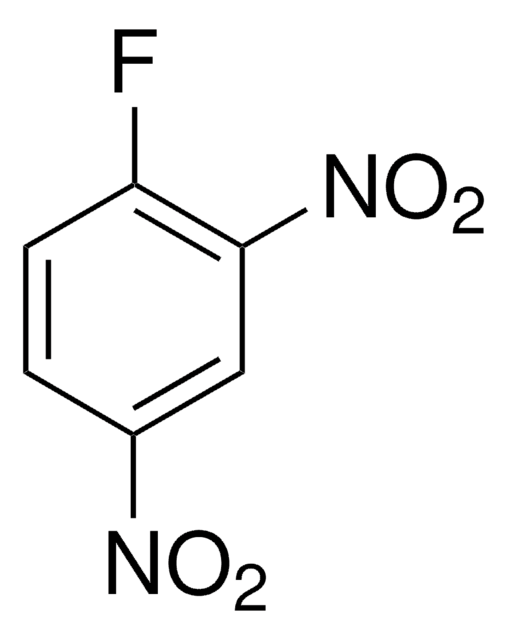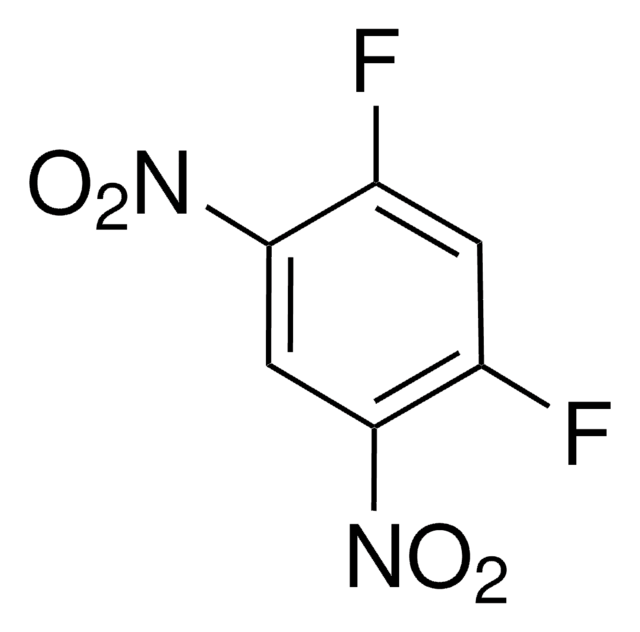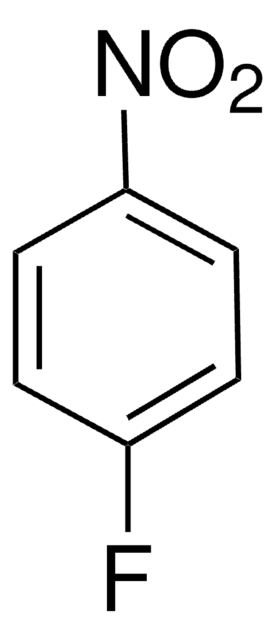D1529
1-Fluoro-2,4-dinitrobenzene
≥99%
Synonym(s):
2,4-Dinitro-1-fluorobenzene, DNFB, DNPF, FDNB, Sanger reagent
About This Item
Recommended Products
Assay
≥99%
form
solid
refractive index
n20/D 1.569 (lit.)
bp
178 °C/25 mmHg (lit.)
mp
25-27 °C (lit.)
density
1.482 g/mL at 25 °C (lit.)
storage temp.
room temp
SMILES string
[O-][N+](=O)c1ccc(F)c(c1)[N+]([O-])=O
InChI
1S/C6H3FN2O4/c7-5-2-1-4(8(10)11)3-6(5)9(12)13/h1-3H
InChI key
LOTKRQAVGJMPNV-UHFFFAOYSA-N
Looking for similar products? Visit Product Comparison Guide
General description
Application
Biochem/physiol Actions
Signal Word
Warning
Hazard Statements
Precautionary Statements
Hazard Classifications
Acute Tox. 4 Oral - Eye Irrit. 2 - Skin Irrit. 2 - Skin Sens. 1 - STOT RE 2 - STOT SE 3
Target Organs
Respiratory system
Storage Class Code
10 - Combustible liquids
WGK
WGK 3
Flash Point(F)
327.2 °F
Flash Point(C)
164 °C
Personal Protective Equipment
Certificates of Analysis (COA)
Search for Certificates of Analysis (COA) by entering the products Lot/Batch Number. Lot and Batch Numbers can be found on a product’s label following the words ‘Lot’ or ‘Batch’.
Already Own This Product?
Find documentation for the products that you have recently purchased in the Document Library.
Customers Also Viewed
Our team of scientists has experience in all areas of research including Life Science, Material Science, Chemical Synthesis, Chromatography, Analytical and many others.
Contact Technical Service











